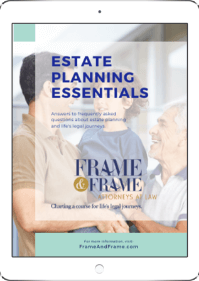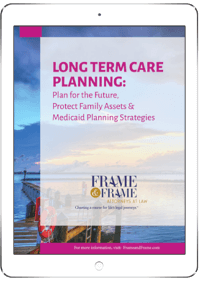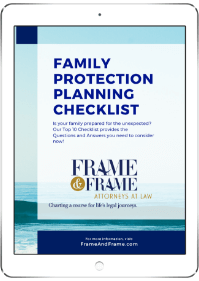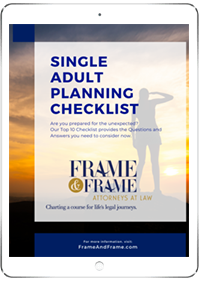Guide to Wills, Trusts, & Probate
In this free guide, we debunk common myths about wills, trust, and probate. In addition, we answer common questions like:
- What is the difference between a will and a trust?
- What legal documents should a simple will contain?
- What documents you’ll need to make health care decisions for a family member
- What is probate and why you should care?
- How to create a will for blended families & families with special needs
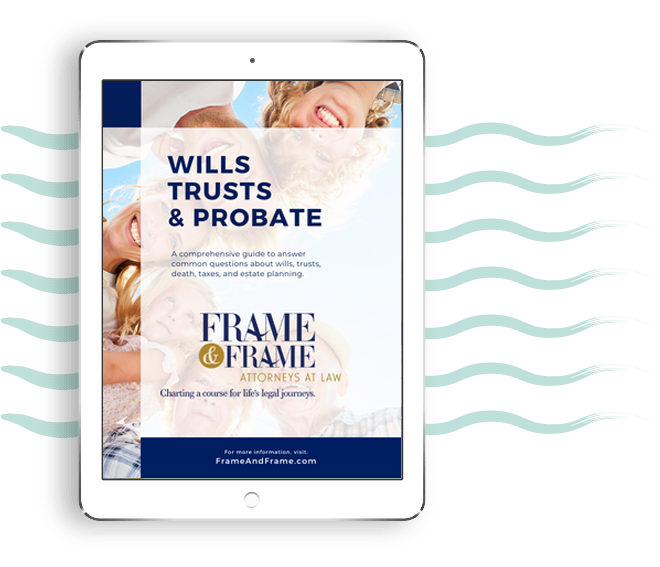
According to Forbes, over half of Americans do not have an estate plan in place, whether that is a simple will, a trust, or other legal provisions. While death is an unpleasant subject, beginning the conversation can save you and your family considerable anguish in the moment of grief or crisis. Unfortunately, many people believe that having a simple will is adequate, especially if they do not have a large estate. However, nothing could be further from the truth! In addition, some people do not consider the tough decisions that must be made if you are incapacitated – such as a car accident, stroke, or dementia.
For many younger families, death is “years away,” but this kind of thinking often leaves children, pets, and other loved family members with a lot of questions and turmoil, if the unexpected occurs. Estate planning must also include considerations for taxes and probate, in the event of one’s passing. People with the best intentions often neglect to consider the implications of these two issues, especially in Maryland. Common misconceptions about estate planning lead many Americans to put off or avoid the topic. Some of these estate planning misconceptions include:
- They believe that working with an estate planner is expensive;
- They think that a will is adequate to meet the needs of them and their family;
- They think that their family members will behave amicably and will sort out the estate by themselves without legal guidance; and
- They believe that they do not have enough assets to make estate planning worthwhile.
These misconceptions often leave family members with difficult and sometimes, controversial decisions or more questions than answers. This guide will help you understand:
- What is the difference between a will and a trust?
- What legal documents should a simple will contain?
- What documents you’ll need to make health care decisions for a family member
- What is probate and why you should care?
- How to create a will for blended families & families with special needs
After you have downloaded your free guide, you can schedule a free consultation with one of our experienced estate planning attorneys. Your family will thank you for your thoughtful planning.
Do you have more questions?
Contact the experienced attorneys at Frame & Frame to schedule a private consultation to discuss your concerns.

